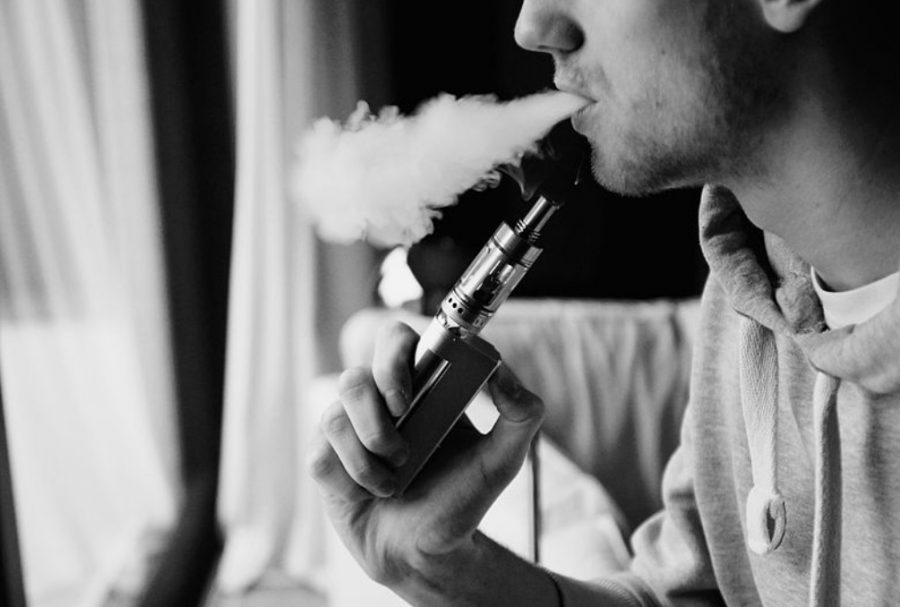Flavored vapes are banned, now what?
Michigan is now the first state to completely ban the distribution and selling of flavored e-cigarettes. This ban was sparked by the vape epidemic across the country in which teenagers are smoking e-cigarettes with no concept of potential harmful effects.
Vaping has been an issue for years now, and most likely will continue to be for years to come. With students buying hundreds of dollars worth of vape mediums and supplies, all of which contain nicotine, they were bound to become addicted.
As a student, this is scary to watch. Having close friends you have known your entire life become involved in such risky activity at such a young age is heartbreaking. When a staff member catches a 15- year-old in the bathroom alone vaping nicotine at 8:45 a.m., that is when you know it is a problem. Nonetheless, will banning vapes stop vaping? Or will it subject students to even more dangerous ways of getting their nicotine fix?
It is known that this issue is affecting what seems to be thousands of teenagers across the country. When you have that many people involved in an issue like this, a simple law will not make it go away, but just make students more creative in finding a way to treat their addictions such as cigarettes or even more high brow drugs.
On top of that, teenagers are not the only citizens purchasing and using e-cigarettes. E-cigarettes’ original intention was to work as a way to help long time smokers lose the unhealthy habit. With this law coming into place, several hundred Michigan small businesses could potentially close, causing a spike in unemployment.
The ban is set to go into effect in 30 days for around 6 months but will then need to be renewed for another 6 months, which may be unlikely as vape advocates speak out against the new law.
“We look forward to supporting the lawsuits that now appear necessary to protect the right of adults to access these harmful reduction products,” the American Vaping Association president told the Washington Post.
Youth vaping was declared a public health emergency after studies showed vaping products contain a variety of chemicals and metal particles whose long-term impact is unknown. Youth vaping is a crisis and should be treated as such, but is the outlawing of flavored vapes the best way to treat it?
In an ideal world teenagers would not vape. But in an ideal world, they also would not drink, steal, or, in some cases, illegally drive past 10 p.m. But unfortunately, despite the law, they still will find ways.

